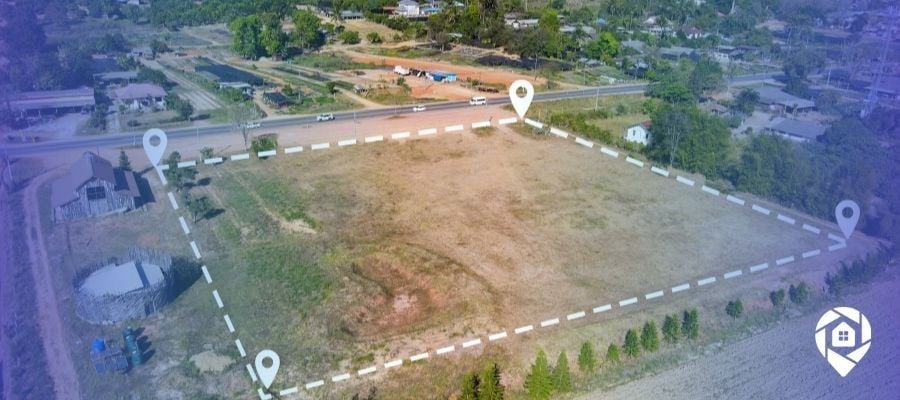
Crafting the Perfect Real Estate Investment Business Plan

Imagine having a GPS for your real estate investment journey. It shows you where you’re headed and the best route to get there. A real estate investment business plan is a roadmap for your business. It provides clear direction for your investment strategy.
Many new investors jump straight into buying properties without a plan. While enthusiasm is great, skipping the planning phase can lead to missed opportunities or costly mistakes. A solid business plan helps you stay organized, avoid risks, and set realistic goals.
Think of your plan as more than just a document. It’s a living guide you can update as your business grows. It can also help you raise money from investors or lenders because it shows them you’ve done your homework.
In this article, we’ll show you why having a business plan for real estate investing is so important, and we’ll break it down step-by-step so you can create your own with confidence.
Why a Business Plan for Real Estate Investing is Vital
A business plan isn’t just a formality; it’s the foundation of your success as a real estate investor. Without one, it’s easy to lose focus, overspend, or miss out on opportunities. Here’s why creating a strong real estate investment business plan is so important:
- Gives you clear direction: A business plan lays out your goals and the steps needed to reach them. You’ll know exactly what properties to target, how much to invest, and when to take action.
- Helps you avoid mistakes: Real estate investing can be unpredictable. By mapping out potential risks and challenges ahead of time, you can create backup plans and reduce the chances of costly errors.
- Makes it easier to raise capital: Whether you’re asking a bank for a loan or presenting to private investors, having a clear business plan shows you’re serious and have a well-thought-out strategy.
- Keeps you organized: A plan helps you track your progress over time. You’ll know which strategies are working and where you need to make changes.
- Acts as a living guide: Real estate markets change, and so will your goals. Your business plan isn’t static—you can (and should) update it as your business grows.
As Benjamin Franklin once said, “Failing to plan is planning to fail.” This couldn’t be truer in real estate investing. A clear business plan sets you apart from investors who rely on guesswork. It gives you confidence in your decisions and increases your chances of building long-term wealth.
A Step-by-Step Guide to Creating a Real Estate Investment Business Plan
Step 1: Executive Summary
Your executive summary is the starting point of your real estate investment business plan, but don’t be fooled by its name; it’s one of the most important sections. Think of it as a quick overview that explains what your business is about and why it will succeed.
In this section, you’ll summarize your business goals, the types of properties you plan to invest in, your target market, and your strategy for growth. Even though it’s brief, it should be powerful enough to grab a potential investor’s attention.
Tips for writing your executive summary:
- Keep it clear and focused; avoid unnecessary details.
- Highlight what makes your business unique.
- Include a snapshot of your financial goals and expected returns.
Remember, many investors and lenders will read this part first, and some might decide whether to fund you based on it alone. Write it last, once the rest of your plan is complete, so you can pull together all the key points.
Step 2: Company Description and Structure
The company description provides a deeper look at who you are and how your business is set up. In this part of your real estate investment business plan, you’ll outline the foundation of your business so investors, lenders, or partners understand how it operates.
Key elements to include:
- Legal structure: Are you a sole proprietor, LLC, partnership, or corporation? This matters for taxes and liability.
- Location: Where is your business based, and what areas will you invest in?
- Mission statement: A short statement that explains your purpose and values.
- Management team: Introduce yourself and any partners or key team members, highlighting their roles and experience.
Your company description is also a chance to share your story. Why did you choose real estate investing? What makes you passionate about it? The more personal and authentic your vision is, the more people will connect with it.
Step 3: Market Analysis
Market analysis is one of the most critical parts of your real estate investment business plan because it shows you understand the environment you’re entering. This section should outline the current market conditions, your competition, and the type of customers you plan to target.
Key points to cover:
- Local market trends: Are property values rising or falling? What’s the demand for rentals or flips in your area?
- Target audience: Who are you trying to attract—homebuyers, renters, or commercial tenants?
- Competition: Identify other investors or companies operating in your market and what sets you apart.
- Growth potential: Include population growth rates, job market strength, and other factors that impact demand.
Use data whenever possible. For example, include stats about vacancy rates, average home prices, or rental demand. Showing that you’ve researched the market helps build credibility with lenders and investors.
Step 4: Property Analytics
Property analytics is where you evaluate each potential property to see if it’s a smart investment. This part of your business plan shows that your decisions are based on numbers, not guesswork.
Key things to analyze include:
- Location: Is the neighborhood desirable? Are there schools, jobs, or amenities nearby that attract tenants or buyers?
- Purchase price vs. potential value: Compare the cost of the property with its potential resale or rental value.
- Cash flow projections: Estimate rental income and expenses to determine if the property will generate positive cash flow.
- Risk factors: Consider possible issues like repairs, vacancy rates, or changes in the market.
Example: If you’re analyzing a rental property, calculate the monthly rent you expect to earn, subtract your expenses (mortgage, taxes, repairs), and see if there’s profit left over. The stronger the numbers, the stronger your investment case will be.
Step 5: Marketing & Sales Strategy
Your marketing and sales strategy explains how you will attract buyers, tenants, or investors to your properties. This section of your business plan should clearly show how you plan to create demand and close deals.
Ideas to include:
- Marketing channels: Will you use social media, real estate listing sites, direct mail, or networking events?
- Branding: Explain how you’ll build a recognizable brand that inspires trust.
- Sales process: Outline the steps from initial contact to closing the deal.
- Customer retention: If you’re working with tenants, how will you keep them happy and renewing leases?
Example: You might plan to launch Facebook and Instagram ads for each property, network with local real estate agents, and host open houses. The key is to show you have a consistent, repeatable plan to market and sell.
Step 6: Financial Projections
Your financial projections are one of the most important parts of your real estate investment business plan because they show how your business will make money. Investors and lenders rely on this section to decide if they should support you.
What to include:
- Income forecast: How much revenue do you expect from property sales or rentals each month and year?
- Expense forecast: List ongoing costs such as mortgage payments, maintenance, property management, taxes, and insurance.
- Profit and loss projections: Estimate how much profit you’ll have after covering all expenses.
- Funding needs: Clearly state how much money you need to get started or expand, and how you will use it.
Example: If you plan to buy three rental properties, show expected monthly rent for each one, subtract costs, and project annual cash flow. Include best-case and worst-case scenarios to show you’re prepared for market changes.
Top Tips for a successful Real Estate Investment Business Plan
A strong business plan is never “one size fits all,” but there are some proven strategies to make yours more effective:
- Be as detailed as possible: The more specific you are about your goals, timelines, and strategies, the more actionable your plan will be. Include exact numbers, dates, and clear steps.
- Update your plan regularly: Real estate markets shift. Set a schedule to review your plan quarterly or annually and adjust as needed.
- Leverage technology: Use property analytics tools, CRM software, and financial calculators to get accurate data and stay organized.
- Know your unique selling proposition (USP): Identify what sets you apart from other investors. Do you specialize in a certain neighborhood, property type, or strategy? Highlight this clearly.
- Be realistic: It’s great to be ambitious, but your financial projections and growth targets should be achievable.
Following these tips will make your real estate investment business plan a true working guide, not just a document you file away. The more time and effort you put into it, the more confidence you’ll have in every investment decision.
Check out the video below to learn 5 mindset hacks to transform your real estate business.
Frequently Asked Questions About Real Estate Investment Business Plans
1. What is a real estate investment business plan?
A real estate investment business plan is a document that explains your goals as an investor and how you plan to reach them. It includes details about your target market, strategies, finances, and the types of properties you want to buy or sell.
2. Why do I need a business plan for real estate investing?
A business plan helps you stay organized and focused. It also makes it easier to secure funding from banks or investors because it shows them you have a clear plan to succeed.
3. How detailed should my property investment business plan be?
The more details, the better. Your plan should include market research, financial projections, property analysis, and marketing strategies. This information helps guide your decisions and reduces risk.
4. Can I update my real estate investment business plan?
Yes! Your business plan should be a “living” document. Update it regularly as the market changes or your goals shift.
5. How do I start creating a real estate investment business plan?
Begin with the basics: your goals, the type of properties you want to invest in, and your budget. Then add more detail by researching the market, creating financial forecasts, and deciding how you will find and manage properties.
Conclusion
A real estate investment business plan is more than just paperwork. It is a strong tool that guides you on your journey as an investor. It shows where your business stands today and outlines the steps you need to take to reach your long-term goals.
Remember, every successful real estate portfolio starts with a clear plan, focus, and determination. By taking the time to create and update your business plan, you set yourself apart from investors who rely on guesswork.

About Samantha Ankney
Samantha is the Social Media Manager at DealMachine, where she oversees all social media strategies and content creation. With 4 years of experience at the company, she originally joined as a Media Specialist, leveraging her skills to enhance DealMachine's digital presence. Passionate about connecting with the community and driving engagement, Samantha is dedicated to sharing valuable insights and updates across all platforms.




